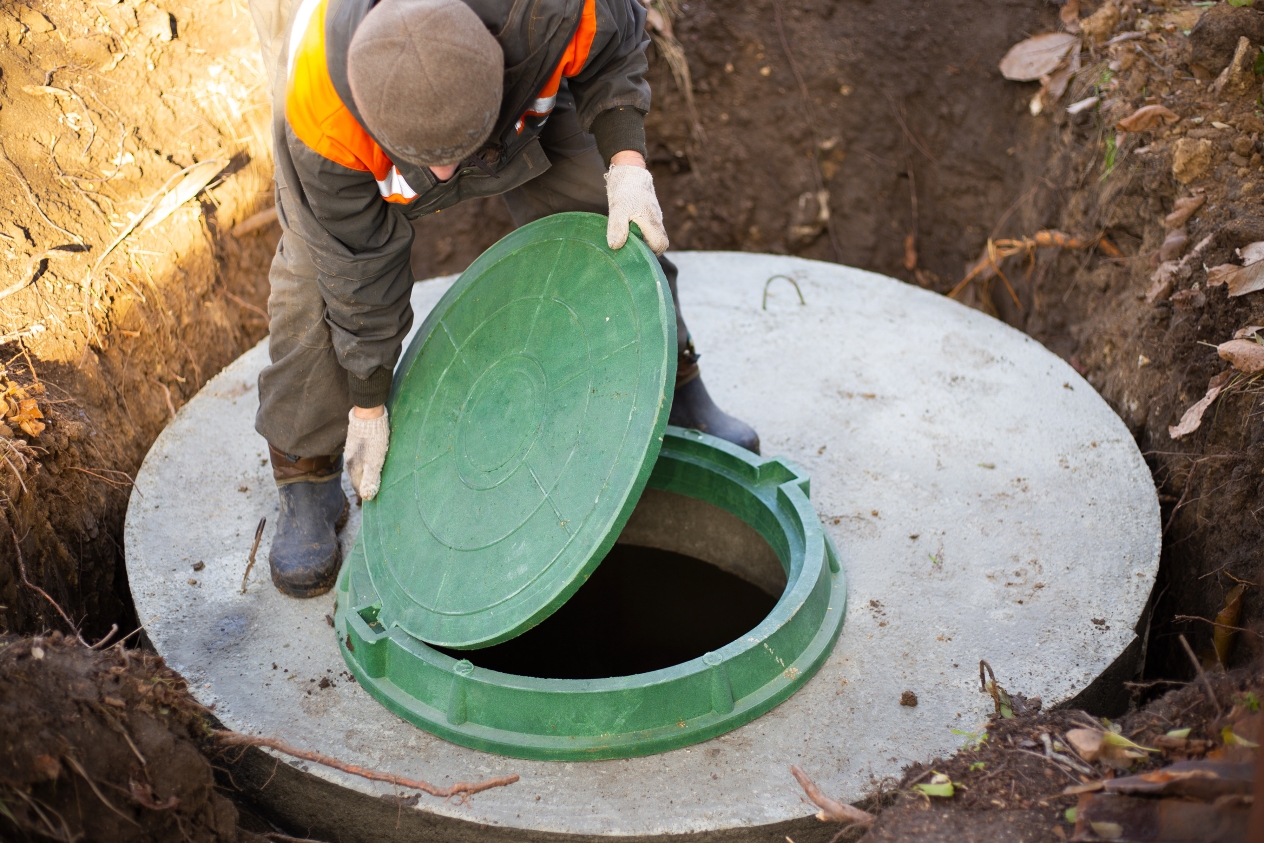
With winter here, Jack Frost may be nipping at your septic system. Freezing temperatures pose potential problems for septic systems. More than 30% of Minnesota homes and businesses use septic systems, making maintaining these systems critical to protecting our groundwater, lakes, streams, and human health.
The following tips will help keep your septic system warm this winter and prevent the costs and inconveniences that come when elements of a septic system freeze up.
- Place a layer of mulch 8 to 12 inches thick over the pipes, tank, and soil treatment system to provide extra insulation. This can be straw, leaves, hay, or other loose material that will stay in place and not become compacted. This is particularly important for new systems that were installed so late in the year that vegetative cover didn't get established. However, if the system is currently frozen, don’t add mulch now; it will delay thawing in the spring.
- Use water — the warmer the better — if you’re worried your system is starting to freeze. Spread out your laundry schedule so you run one warm/hot load a day. Use the dishwasher and take hot baths. Do not leave water running all the time — this will overload the septic system.
- Going away for an extended period? Have someone use warm water in the home regularly or pump out your tank before leaving.
- Fix any leaky plumbing fixtures or appliances in your home. This will help prevent freezing problems and help your system perform better all year.
- Keep all vehicle, animal, and people traffic off the system. This is a rule to follow all year as compacted snow and soils cause frost to go down deeper and faster. Pay special attention to the area between the house and tank.
- Keep an eye on your system. If any seeping or ponding occurs, contact an onsite professional to help determine the cause and remedy.
- Add more insulation to your system. This could include replacing pipe with insulated pipe, adding expanded foam panels over septic tanks, or adding more soil cover.
If your system freezes
If your septic system freezes, call a septic system professional. The MPCA website includes a search tool for finding certified professionals in your area. The pros can send cameras down pipes to determine where freezing is occurring, and have devices like heat tape, tank heaters, steamers, and high-pressure jetters for thawing pipes.
If it’s not feasible to correct a problem, the only option is using the septic tank as a holding tank until the system thaws naturally. Contact a licensed maintainer to empty the tank when it starts to fill up. In this situation, reduce water use by limiting the number of toilet flushes, taking short showers, and using the dishwasher at full capacity.
There are some things you should never do to try to fix a frozen system. Do not add antifreeze, salt, or a septic system additive into the system. Do not pump sewage onto the ground surface. Do not start a fire over the system to attempt to thaw it out. Do not run water continually to try to unfreeze the system. This can overload the system.
Keep your septic system healthy year-round
Winter weather causes unique challenges for septic systems, but it’s important to keep your septic system healthy year-round. A healthy septic system protects your home, your investment, and the environment.
Understand how your system works
A septic system has three parts: household plumbing, a tank to collect sewage and solids, and a soil treatment area. Each part must be in working order to provide effective sewage treatment.
Inspect and pump regularly
Have your septic tank evaluated at least every three years and pump out solids when the sludge is less than 12 inches from the bottom of the outlet baffle or the total sludge and scum volume is greater than 25%. The rate of accumulation depends entirely on how the system is used. Septic tank additives are not an alternative to pumping the accumulated solids from the tank.
Manage water use
Conserve water, fix leaks, and spread water use throughout the day and week to avoid overloading your system.
Be careful about what goes down the drain
Minimize harsh cleaners, bleach, and antibacterial soaps. Never dispose of paints, medications, chemicals, grease, lint, feminine hygiene products, or plastics in the septic system — these can harm bacterial action or clog lines.
Prioritize tank and soil area care
Pump septic solids through the tank’s maintenance opening regularly, inspect baffles, and keep risers accessible and insulated. Maintain grass or native plants over the treatment area, but avoid planting trees, shrubs, or gardens there, and keep heavy vehicles off it year-round.
Additional resources
Since local ordinances can vary from the state code, always check with your local government (township, city, or county) to determine the requirements in your area.
Septic system DOs and DON’Ts (wq-wwists6-14)
Septic systems owners (University of Minnesota)
What to do with your septic system during a flood (c-er3-16)
Abandoning a subsurface sewage treatment system (wq-wwists4-01)